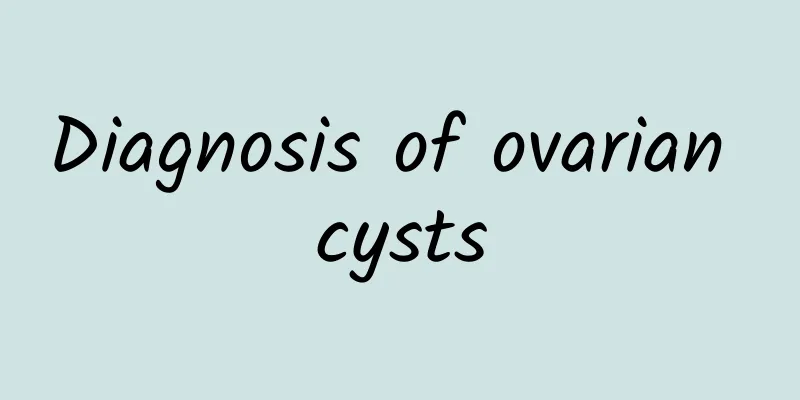What foods are good for adenomyosis?

|
For patients with adenomyosis, diet can be used as an auxiliary conditioning part. It is recommended to consume anti-inflammatory, fiber-rich and nutritionally balanced foods, such as dark vegetables, fruits, fish and whole grains. At the same time, high-sugar, high-fat and irritating foods should be avoided. 1. Increase your intake of anti-inflammatory foods Adenomyosis is a disease associated with chronic inflammation, so consuming anti-inflammatory foods can help relieve symptoms. Eat more deep-sea fish rich in omega-3 fatty acids, such as salmon and sardines, which can reduce the body's inflammatory response. Dark green vegetables such as spinach and broccoli are rich in vitamins A and C, which help boost immunity while reducing inflammation. Turmeric is also widely believed to have anti-inflammatory effects and can be added to daily cooking in moderation. 2. Choose low-fat, high-fiber foods A high-fat diet may increase estrogen levels and worsen the symptoms of adenomyosis. Patients are advised to reduce their intake of red meat and high-fat dairy products and switch to plant proteins such as beans and lentils and whole grains rich in dietary fiber such as oats, brown rice, and whole wheat bread. Fiber can also help the body eliminate excess estrogen, thereby reducing the risk of worsening the condition. 3. Eat foods rich in iron and B vitamins Adenomyosis is often accompanied by menorrhagia, which may cause anemia. It is recommended to consume iron-rich foods such as animal liver, lean beef and spinach to replenish blood needs. At the same time, B vitamins, especially B6 and folic acid, can improve hormone metabolism and relieve fatigue caused by menstrual bleeding. Whole grains, bananas, avocados, etc. are common sources of B vitamins. 4Avoid irritating and high-sugar foods Caffeinated beverages such as coffee, strong tea, alcohol and high-sugar snacks can aggravate hormonal fluctuations and inflammatory responses. Patients with adenomyosis should try to avoid such foods and instead choose warm drinks such as chrysanthemum tea and rose tea to soothe the mood and relieve dysmenorrhea. Overall, there is no specific "cure food" for adenomyosis. Dietary adjustments are more to help improve symptoms and enhance the body's immunity. Considering individual differences and the stage of the disease, patients should prioritize a balanced diet, increase exercise appropriately, and insist on blood tests. If symptoms continue to worsen, you should consult a professional doctor as soon as possible. |
<<: Are uterine fibroids serious? What are the dangers?
>>: At what age can adults get the flu vaccine?
Recommend
What medicine should I take to treat uterine fibroids? What medicine is effective for uterine fibroids?
What medicine should be taken to treat uterine fi...
Is there any relationship between uterine fibroids and frequent anger?
There is a direct causal relationship between ute...
How to treat uterine fibroids? Conditioning methods for uterine fibroids
Gynecologists say that the occurrence of uterine ...
Describe the causes of ectopic pregnancy
Ectopic pregnancy happens to many women. It is a ...
Women should pay attention to their symptoms when they have dysmenorrhea
Nowadays, women may suffer from dysmenorrhea duri...
What drugs can treat uterine fibroids?
What drugs can treat fibroids? The treatment of u...
You can do it with your bare hands! 4 advanced exercises to train your core muscles
The core is an important muscle group that stabil...
Explanation of the causes of several easily overlooked adnexitis
There are many female patients with adnexitis. Am...
Female Chinese medicine practitioners are pressing 3 acupoints to detoxify and help lose weight
[Key Points]: Massaging acupoints to lose weight ...
What are the causes of irregular menstruation?
Irregular menstruation is a disease that many peo...
After the Ice Bucket~The Internet-famous Bottle Cap Kick Challenge! Experts: There are 4 major areas of potential sports injuries, the secret to breaking them is…
Following the "Ice Bucket Challenge", t...
There are 6 things to pay attention to during perimenopause pregnancy. You should pay attention to them for yourself and your baby.
It can be said that the chances of perimenopausal...
What medicine should I take after miscarriage?
What medicine should I take after miscarriage? Af...
What are the common symptoms of adnexitis?
Many patients do not understand adnexitis, fail t...
How to distinguish between menstruation and miscarriage? Distinguish from these two aspects
Women's menstruation will stop after they bec...









